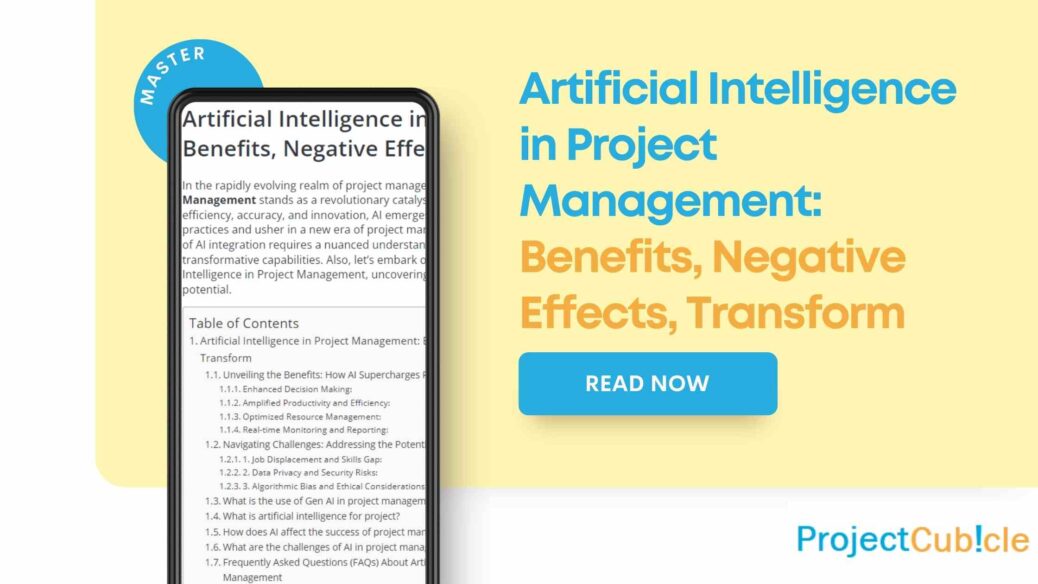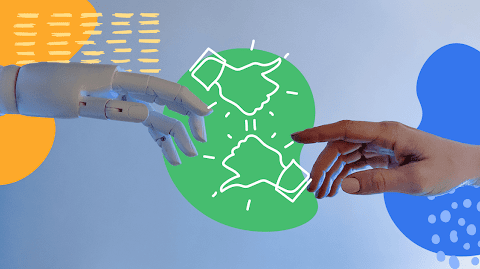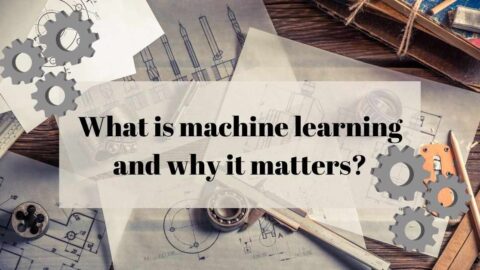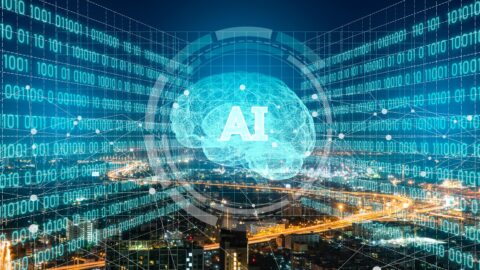Artificial Intelligence in Project Management: Benefits, Negative Effects, Transform
In the rapidly evolving realm of project management, the integration of Artificial Intelligence in Project Management stands as a revolutionary catalyst for change. As organizations strive for heightened efficiency, accuracy, and innovation, AI emerges as a formidable ally, promising to reshape traditional practices and usher in a new era of project management excellence. However, navigating the complexities of AI integration requires a nuanced understanding of its benefits, potential drawbacks, and transformative capabilities. Also, let’s embark on a journey to explore the dynamic impact of Artificial Intelligence in Project Management, uncovering its myriad benefits, potential pitfalls, and transformative potential.
Table of Contents
The integration of Artificial Intelligence in Project Management into project management is rapidly becoming a necessity rather than an option. AI, defined as the simulation of human intelligence in machines programmed to think and learn, is revolutionizing the way projects are managed across various industries. Also, this transformation is primarily due to AI’s ability to process large volumes of data quickly, learn from past project outcomes, and provide insights that human project managers might not readily see.
In project management, AI technologies are employed to streamline operations, improve efficiency, and reduce the likelihood of human error. By automating routine tasks such as scheduling, resource allocation, and progress tracking, project managers can focus more on strategic planning and decision-making. Moreover, AI-powered tools can assist in identifying project risks early, suggesting mitigation strategies, and optimizing resource distribution to ensure project success.
Unveiling the Benefits: How AI Supercharges Project Management
-
Enhanced Decision Making:
In the realm of project management, AI serves as a potent tool, offering project managers a treasure trove of insights gleaned from vast datasets and complex algorithms. Picture a scenario in a construction project where AI-powered predictive analytics come into play. Also, drawing upon historical data, weather patterns, and resource availability, these sophisticated algorithms forecast potential delays with remarkable accuracy. Armed with such foresight, project managers are equipped to make proactive decisions, adjusting schedules, reallocating resources, and implementing contingency plans to mitigate risks before they spiral out of control. Also, gone are the days of relying solely on intuition or past experiences; AI empowers project managers to make data-driven decisions with confidence, ushering in a new era of efficiency and foresight in project management.
-
Amplified Productivity and Efficiency:
At the heart of AI’s transformative potential lies automation, a force that liberates project teams from the shackles of mundane tasks, allowing them to focus their energies on high-value activities. Consider a software development project where AI-driven tools take center stage. Also, these tools automate tedious processes such as code review, bug detection, and performance optimization in real-time, significantly expediting workflows and reducing the incidence of manual errors. By harnessing the power of Artificial Intelligence in Project Management, project teams can streamline operations, accelerate project timelines, and deliver tangible results with unmatched efficiency. Also, the era of AI-powered project management heralds a paradigm shift, where productivity is amplified, and innovation flourishes.
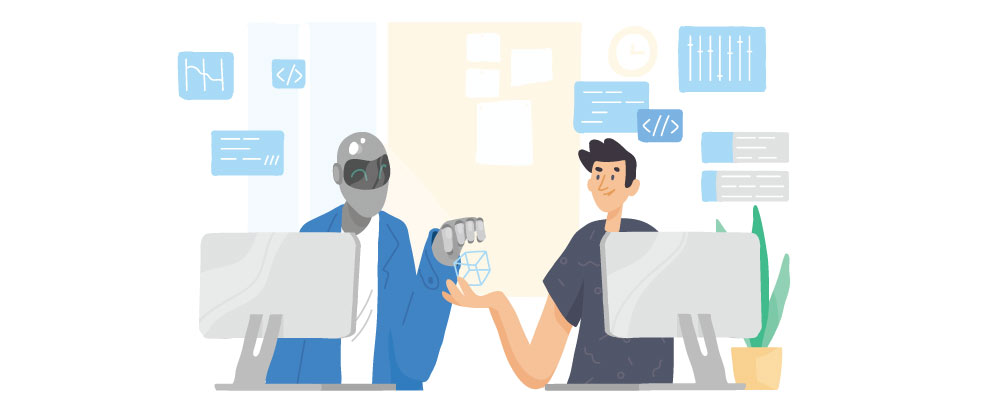
In the rapidly evolving realm of project management, the integration of Artificial Intelligence in Project Management stands as a revolutionary catalyst for change.
-
Optimized Resource Management:
In the complex landscape of project management, resource allocation stands as a critical determinant of success. Here, AI emerges as a game-changer, leveraging advanced algorithms to analyze vast troves of data and devise optimal utilization strategies. Also, take, for instance, a marketing campaign where AI algorithms delve deep into customer preferences, market trends, and budget constraints to craft personalized content strategies. By harnessing AI’s predictive capabilities, organizations can allocate resources judiciously, targeting the right audience segments with pinpoint accuracy. The result? Maximized ROI, minimized wastage, and enhanced strategic alignment, paving the way for sustained success in an ever-evolving marketplace.
-
Real-time Monitoring and Reporting:
In the fast-paced world of project management, real-time insights are invaluable currency, empowering stakeholders to stay abreast of developments and make informed decisions on the fly. Imagine a healthcare project where AI-powered dashboards serve as the linchpin of success. Also, these dashboards track patient outcomes, medication adherence, and treatment efficacy in real-time, offering healthcare professionals unprecedented visibility into project performance. By detecting anomalies, identifying trends, and generating actionable insights, AI revolutionizes the healthcare landscape, enabling professionals to deliver personalized care and optimize patient outcomes with unparalleled precision. Also, in the age of AI-powered project management, real-time monitoring and reporting are not just luxuries; they are indispensable tools for success.
Navigating Challenges: Addressing the Potential Drawbacks of AI Integration
1. Job Displacement and Skills Gap:
While Artificial Intelligence in Project Management promises to augment human capabilities, there are concerns about job displacement and the widening skills gap. Also, organizations must invest in workforce development initiatives, reskilling programs, and job transition support to mitigate the negative impact of automation. Also, by empowering employees with new skills and fostering a culture of lifelong learning, organizations can navigate the workforce challenges posed by AI integration effectively.
2. Data Privacy and Security Risks:
AI relies heavily on data, raising concerns about privacy, security, and ethical use. Also, organizations must implement robust data governance frameworks, encryption protocols, and access controls to protect sensitive information from breaches and unauthorized access. Also, by prioritizing data privacy and security measures, organizations can build trust with stakeholders, comply with regulatory requirements, and safeguard their reputation in an increasingly data-driven world.
3. Algorithmic Bias and Ethical Considerations:
Artificial Intelligence in Project Management algorithms are susceptible to bias, reflecting the biases present in the datasets used for training. Also, to mitigate the risk of algorithmic bias, organizations must adopt transparent, accountable, and ethical AI practices. For example, consider a hiring platform that uses AI to screen job applicants. By conducting regular audits, monitoring algorithm performance, and diversifying training data, organizations can minimize bias and promote fairness in decision-making processes.
Frequently Asked Questions (FAQs) About Artificial Intelligence in Project Management
-
What is Artificial Intelligence (AI) in project management?
- AI simulates human intelligence in machines, like computer systems.
-
What are the benefits of AI in project management?
- Benefits include better decision-making, higher productivity, and improved resource management.
-
How does AI enhance decision-making in projects?
- AI analyzes data to predict outcomes and identify risks, aiding informed decision-making.
-
What challenges come with integrating AI into project management?
- Challenges include job displacement, data privacy concerns, and algorithmic bias.
-
How can organizations address these challenges?
- By investing in workforce development, implementing data security measures, and ensuring ethical AI use.
-
What role does AI play in optimizing resource management?
- AI analyzes data to allocate resources efficiently, minimizing waste and maximizing ROI.
-
How do AI-driven platforms improve real-time monitoring and reporting?
- They collect and analyze data to provide real-time insights through intuitive dashboards and reports.
-
What are some examples of AI applications in project management?
- Examples include scheduling tools, predictive analytics for risk management, and chatbots for communication.
Conclusion
Integrating Artificial Intelligence (AI) into project management brings about transformative benefits. However, this endeavor is not without its challenges, necessitating a responsible approach to adoption. While AI undeniably enhances efficiency and aids in decision-making processes, it does not serve as a replacement for project managers. Also, it is imperative to address issues such as data quality and ethical considerations to ensure the successful integration of AI. Also, embracing AI requires fostering a culture of innovation and adaptability within organizations. Overall, AI presents numerous opportunities for achieving success in project management endeavors.
Hello, I’m Cansu, a professional dedicated to creating Excel tutorials, specifically catering to the needs of B2B professionals. With a passion for data analysis and a deep understanding of Microsoft Excel, I have built a reputation for providing comprehensive and user-friendly tutorials that empower businesses to harness the full potential of this powerful software.
I have always been fascinated by the intricate world of numbers and the ability of Excel to transform raw data into meaningful insights. Throughout my career, I have honed my data manipulation, visualization, and automation skills, enabling me to streamline complex processes and drive efficiency in various industries.
As a B2B specialist, I recognize the unique challenges that professionals face when managing and analyzing large volumes of data. With this understanding, I create tutorials tailored to businesses’ specific needs, offering practical solutions to enhance productivity, improve decision-making, and optimize workflows.
My tutorials cover various topics, including advanced formulas and functions, data modeling, pivot tables, macros, and data visualization techniques. I strive to explain complex concepts in a clear and accessible manner, ensuring that even those with limited Excel experience can grasp the concepts and apply them effectively in their work.
In addition to my tutorial work, I actively engage with the Excel community through workshops, webinars, and online forums. I believe in the power of knowledge sharing and collaborative learning, and I am committed to helping professionals unlock their full potential by mastering Excel.
With a strong track record of success and a growing community of satisfied learners, I continue to expand my repertoire of Excel tutorials, keeping up with the latest advancements and features in the software. I aim to empower businesses with the skills and tools they need to thrive in today’s data-driven world.
Suppose you are a B2B professional looking to enhance your Excel skills or a business seeking to improve data management practices. In that case, I invite you to join me on this journey of exploration and mastery. Let’s unlock the true potential of Excel together!
https://www.linkedin.com/in/cansuaydinim/

